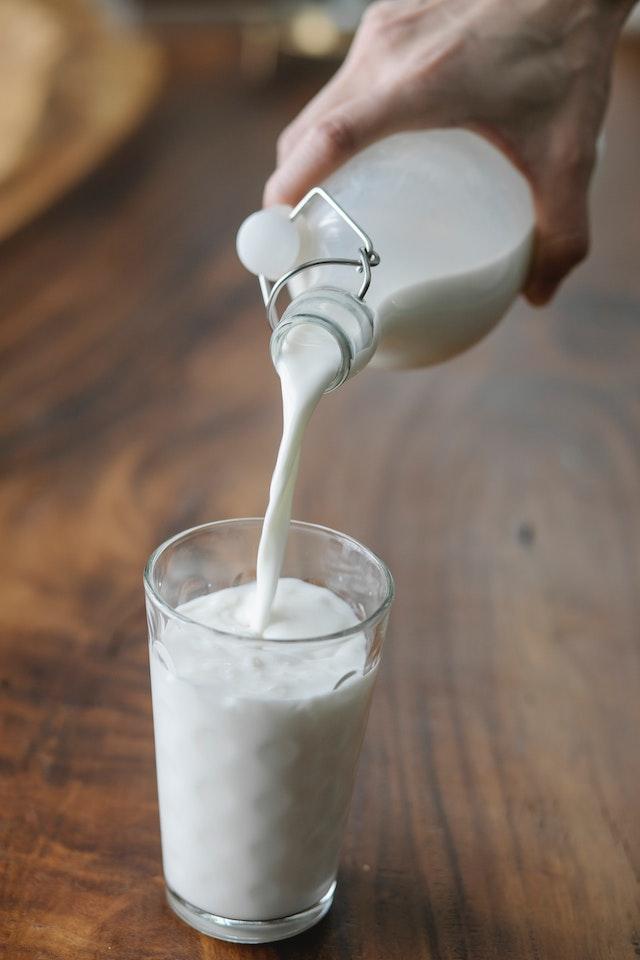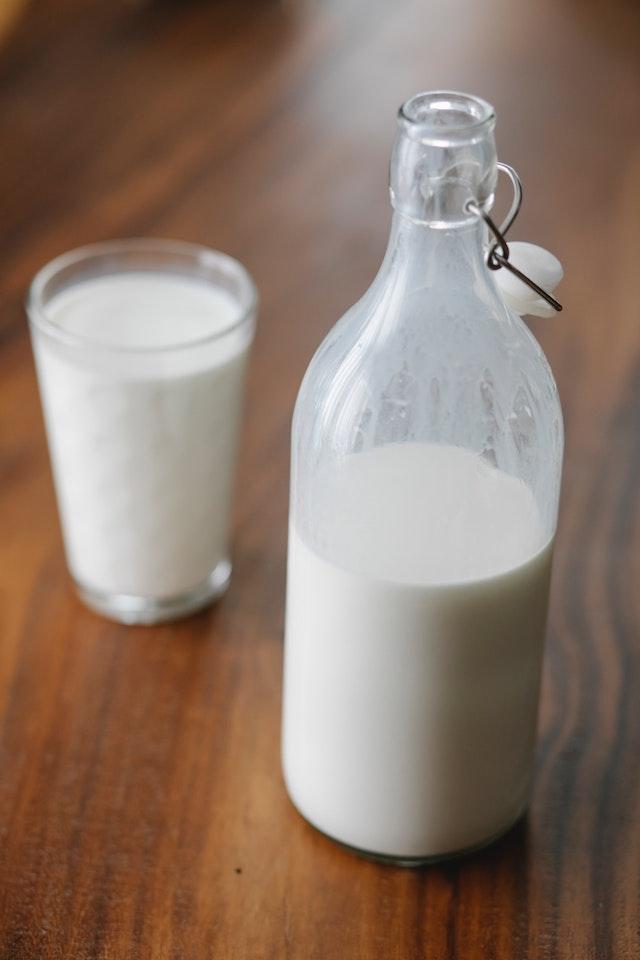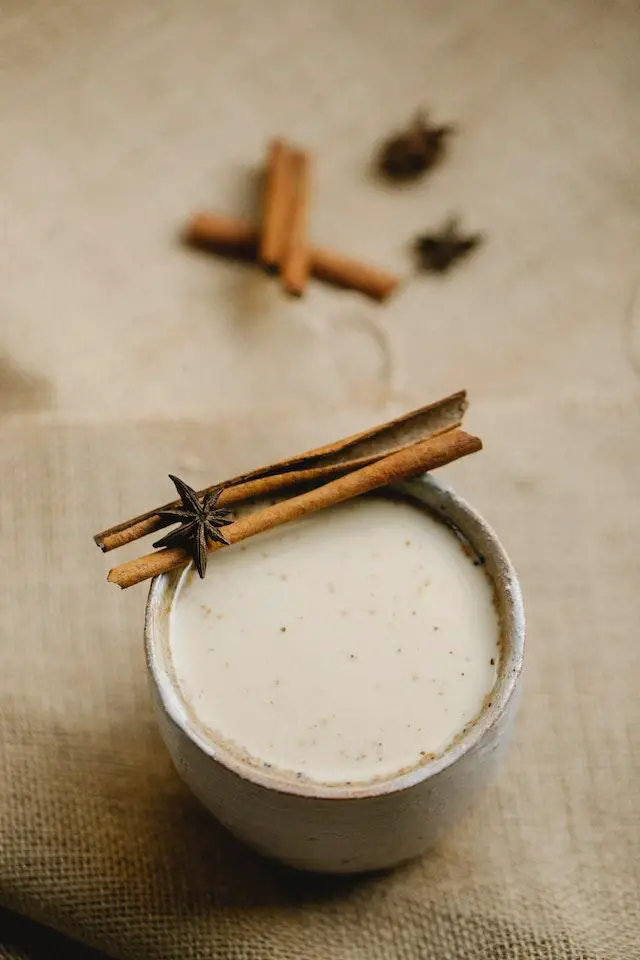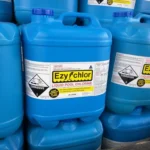
Organic milk is considered to be one of the best sources of essential nutrients for a healthy diet.
It contains high levels of vitamins, minerals, and antioxidants, which help support overall health and well-being.
One major benefit of organic milk is that it has a longer shelf life than conventional milk.
If you want to enjoy all of the health benefits of organic milk, it is important to understand why its shelf life lasts longer than conventional milk and how you can maximize its longevity.
What is organic milk and why is it beneficial?
Organic milk is milk that comes from cows that are raised on an organic farm, which means that they are not given growth hormones or antibiotics.
Compared to conventional milk, it also contains higher levels of vitamins, minerals, and antioxidants, which can help support overall health and well-being.
- Read also: Why Do I Feel Sick After Eating Fruit
- Read also: Why Do I Feel My Heart Beating in My Head
Why does organic milk last longer than conventional milk?

There are several factors that contribute to the longer shelf life of organic milk. These include:
Higher levels of vitamins
Organic milk contains higher levels of vitamins than conventional milk, which helps it stay fresh longer and provides additional health benefits.
Some of the key vitamins found in organic milk include:
- Vitamin A: which is important for vision, bone growth, and immune function
- Vitamin D: which helps regulate metabolism and supports the absorption of calcium
- Vitamin E: which is a powerful antioxidant that can protect against cellular damage.
Higher minerals content
One of the key benefits of organic milk is its higher levels of minerals, which help to support many important processes in the body. These include:
- Calcium: a mineral that is critical for strong bones and teeth. It also plays an important role in blood clotting and muscle function.
- Magnesium: a mineral that is essential for many metabolic processes, including the production of energy and healthy nerve function.
- Phosphorus: a mineral that helps to support the growth and repair of tissues in the body. It is also involved in the regulation of blood pressure and pH balance.
Antioxidants and other healthy compounds
Organic milk also contains a range of beneficial antioxidant compounds that help protect against cellular damage and promote overall health. Some of the key antioxidants found in organic milk include:
- Catechin: which has been shown to have anti-inflammatory and anticancer properties
- Flavonoids: which have been linked to reduced risks of heart disease and stroke
Lack of hormones and antibiotics
One of the key reasons that organic milk has a longer shelf life than conventional milk is that it does not contain any hormones or antibiotics, which can potentially lower its quality and lead to spoilage.
This is because these substances can cause bacterial growth and promote the development of harmful toxins in the milk.
Lack of animal waste.
Organic milk is also free from the animal waste that is found in conventional milk, which can contribute to its shorter shelf life.
Animal waste can contain harmful substances like pesticides and heavy metals, which can negatively impact the quality of the milk and increase the risk of spoilage.
How can you maximize the shelf life of your organic milk?

There are several strategies that you can use to help maximize the shelf life of your organic milk. These include:
Storing the milk
Storing your organic milk properly is one of the key steps you can take to help maximize its shelf life.
This involves keeping the milk in a cool, dry place at room temperature or below, and ensuring that it does not get exposed to direct sunlight, heat, or other extreme conditions.
Using an airtight container or milk bag
It is also important to store your milk in an airtight container or milk bag, which can help prevent the loss of nutrients and prevent bacterial growth.
This can include using a vacuum-sealed container, a glass jar with a lid, or a specialized milk bag designed for long-term storage.
Limiting the number of times that you open your milk container
Another important step you can take is to limit the number of times that you open your milk container.
This will help prevent exposure to air and other contaminants, which can lower its shelf life and increase the risk of spoilage.
Avoiding exposure to high temperatures
It is important to avoid exposing your milk to high temperatures, which can cause spoilage and the development of bacterial growth.
This can include taking steps like not leaving your milk in a hot car, or keeping it out of the sun while you are at work or on vacation.
Avoiding contact with other foods that may contain bacteria or mold
Finally, it is important to avoid direct contact with other foods that may contain harmful bacteria or mold.
This includes cleaning your dairy shelves regularly and storing the milk separately from any fruits, vegetables, or other foods that may harbor bacteria or fungus.
By following these tips, you can help ensure that your organic milk has a long shelf life while maintaining its quality and nutritional value.
How much longer does organic milk last?

The shelf life of organic milk can vary depending on a number of factors, including the conditions in which it is stored and the quality of the milk itself.
In general, however, organic milk tends to have a longer shelf life than conventional milk, typically lasting between two and four weeks when properly stored.
This makes it a great choice for those looking for a high-quality dairy product that can last longer and stay fresh.
- Read also: Why Do I Keep Getting Sick
- Read also: Why Does Lactic Acid Build Up
Final words
Organic milk is a high-quality dairy product with a longer shelf life than conventional milk. There are several strategies that can be used to help maximize the shelf life of organic milk.
Overall, with proper care and storage, organic milk can last anywhere from two to four weeks.
To ensure the quality and longevity of your organic milk, it is important to store it in a cool, dry place and avoid exposure to air, high temperatures, or other contaminants.
Additionally, you should take care not to expose your milk to bacteria-containing foods or leave it in hot conditions for long periods of time.
By following these tips, you can rest assured that your organic milk will have a long and healthy shelf life.



